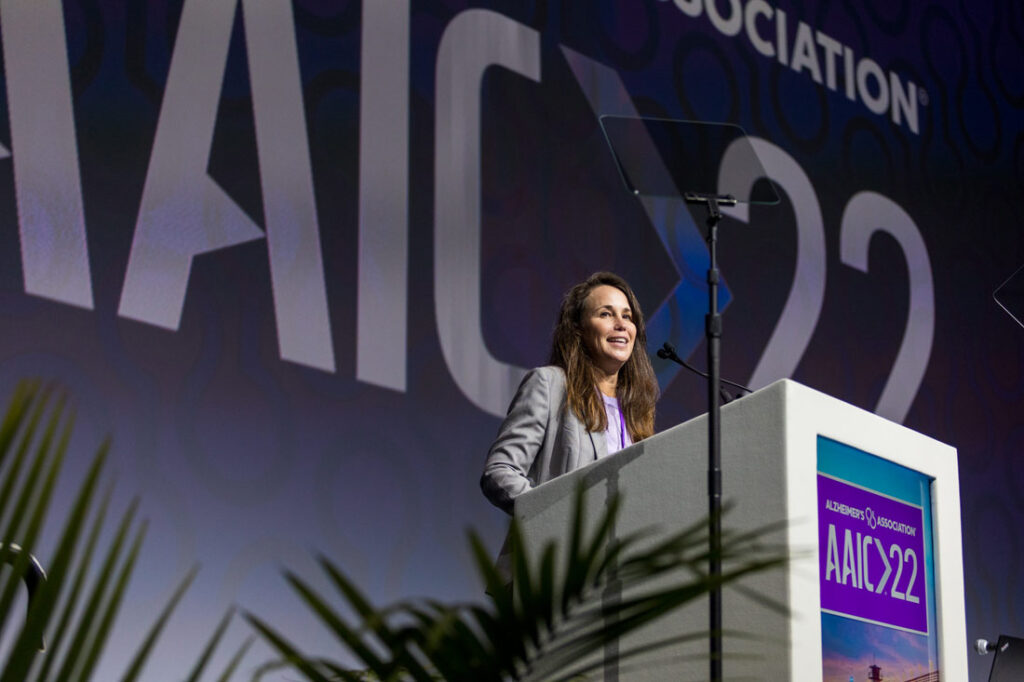The Alzheimer’s Association is one of five nonprofit organizations SUCCESS magazine is spotlighting during the week of Giving Tuesday. Early in November, we posted on our social media accounts asking followers to nominate a charity they felt was making an impact in their communities. We tallied up the nominations and are pleased to highlight the hard work these organizations are doing behind the scenes to better the lives of others.
When Jerome H. Stone’s wife, Evelyn, was diagnosed with Alzheimer’s in 1970, information about the disease was limited. Stone wanted to unite caregivers and provide support for people dealing with Alzheimer’s, so he and a group of family caregivers established the nonprofit Alzheimer’s Association in 1980.
“As the world’s largest nonprofit funder of Alzheimer’s and dementia research, the Alzheimer’s Association is committed to accelerating the global effort to eliminate Alzheimer’s and all other dementia and, until then, to improve care and quality of life for people living with the disease,” says Joanne Pike, DrPH, president and CEO of Alzheimer’s Association.
The Alzheimer’s Association is helping people one by one
The Alzheimer’s Association supports individuals and families affected by Alzheimer’s and other types of dementia via local chapters and programs, including a free 24/7 helpline available 365 days a year in more than 200 languages. During the past year, the helpline responded to 215,000 contacts from family caregivers and others seeking information and guidance.
The organization also offers in-person and online educational programs, from general information to specific guidance intended to help caregivers across all stages of the disease. Other programs help families with financial and legal planning and relevant safety issues like driving. During the past year, the Alzheimer’s Association conducted more than 27,000 support groups for caregivers across the county and more than 3,000 support groups for individuals with early-stage dementia.
Linda Brewster, 58, was diagnosed with mild cognitive impairment (MCI) in 2021. “Hearing the diagnosis was a gut punch. It was like all the air went out of me,” she says. “My mind raced. I would have to give up my job, my independence. I felt like I would have to give up on me.”
Connecting people to one another
Eventually, Brewster found support with Alzheimer’s Association. The Early-Stage Advisory Group (EAG) helps people advocate by sharing their story. Eight individuals from around the country serve one-year terms. Brewster began hers in July.
“The Alzheimer’s Association helped me use my voice as an advocate with the Early-Stage Advisory Group (EAG), where I volunteer as a community educator with the Wyoming chapter,” Brewster says. “We have the opportunity to speak to other community members and use our voice and let them know that the Alzheimer’s Association is out there, and they have the resources to help us.”
Alzheimer’s Association also offers an online community (in both English and Spanish) where people with Alzheimer’s and their caregivers can ask questions and find support called ALZConnected. Since launching in 2011, 157,000 members from all over the world have joined the community.
For families looking for more local support, the Alzheimer’s Association and AARP Community Resource Finder connect caregivers through a ZIP code lookup. The database includes listings for services such as housing options, adult day care, home care, medical and legal services and other community resources.
Investing in treatment research
Today, Alzheimer’s Association is the largest nonprofit funder of Alzheimer’s research. Its current research investments total more than $360 million, providing funding for more than 1,000 projects in 53 countries across six continents. Its mission is to end Alzheimer’s and all other dementia by accelerating global research and maximizing quality care and support.
In pursuit of this mission, the organization hosts the Alzheimer’s Association International Conference, which gathers dementia researchers from across the world to connect and share new discoveries. In 2023, nearly 11,000 scientists from 110 countries attended the conference. Alzheimer’s Association has also committed to developing a treatment by 2025 that will delay the onset of Alzheimer’s and reduce nearly half the number of people with the disease by 2050.
Currently, there are two FDA-approved treatments for early-stage Alzheimer’s, including mild cognitive impairment due to Alzheimer’s disease. Both approved treatments, plus a third treatment currently awaiting FDA-approval, have been shown to slow progression of Alzheimer’s during the earliest stages of the disease.
How to donate to Alzheimer’s Association and other ways to support
The community can get involved by fundraising, advocating or volunteering. For example, individuals can volunteer to support local education programs or can advocate for those affected by Alzheimer’s by urging legislators to make the disease a priority. Individuals can participate in the Walk to End Alzheimer’s®; register for the Longest Day, where, on the summer solstice, people raise Alzheimer’s funds and awareness; bike in the Ride to End ALZ, a cycling event that raises vital funds for dementia research; or simply donate to advance research and provide support programs.
“The Alzheimer’s Association helped me to understand the path I’m on,” Brewster says. “It’s helped me meet other people like me. They helped me feel normal.”
Photo courtesy of Alzheimer’s Association.



